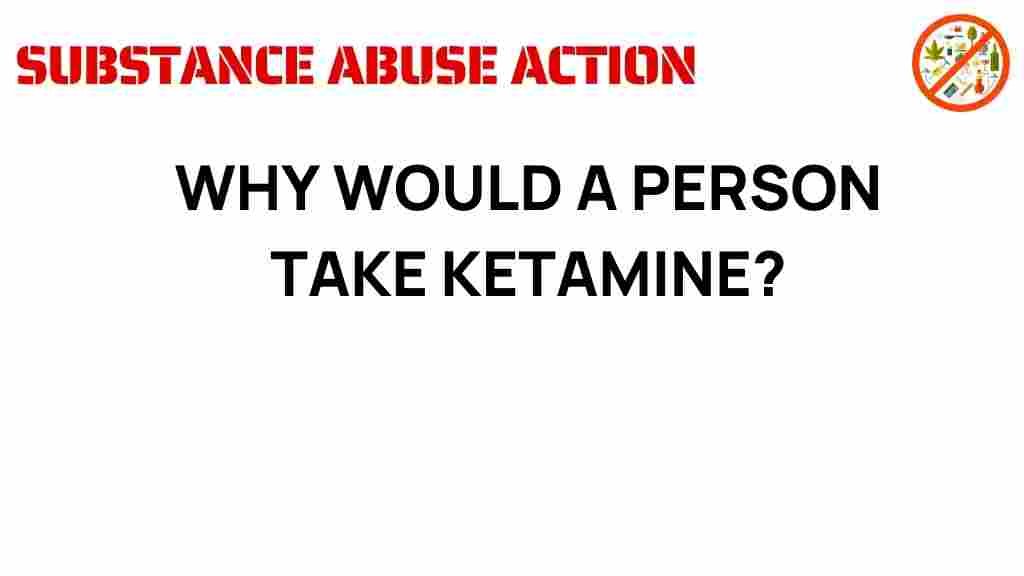The Allure of Ketamine: Unveiling Its Unexpected Appeal in Mental Health Treatment
In recent years, ketamine has emerged from the shadows of its controversial past as an anesthetic and recreational substance to become a beacon of hope for many struggling with mental health issues, particularly depression and addiction. This article explores the multifaceted nature of ketamine, its appeal, and its role in modern therapy. By examining the stigma surrounding this substance and its therapeutic benefits, we aim to provide a comprehensive overview of ketamine as a treatment option.
Understanding Ketamine and Its Uses
Ketamine is a dissociative anesthetic that has been utilized in medical settings since the 1970s. While it is primarily known for its use in surgery and trauma care, recent studies have revealed its potential in treating mental health disorders. As a treatment for depression, anxiety, and PTSD, ketamine offers a new avenue for those who have not found relief through traditional therapies.
The Appeal of Ketamine in Mental Health Treatment
Ketamine’s unique properties and rapid-acting effects make it an appealing option for individuals suffering from severe depression or addiction. The following points highlight its allure:
- Rapid Relief: Unlike traditional antidepressants that can take weeks to show effects, ketamine can relieve symptoms within hours.
- Novel Mechanism: Ketamine works differently than conventional antidepressants by modulating glutamate, a neurotransmitter involved in mood regulation.
- Potential for Long-term Benefits: Some studies suggest that repeat treatments can lead to sustained improvements in mood and mental health.
- Accessibility: With the rise of ketamine clinics, individuals can access treatment more readily than in the past.
Exploring the Therapeutic Process
Understanding how ketamine therapy works is crucial for those considering it as a treatment option. Here’s a step-by-step look at the typical process involved in ketamine therapy:
- Initial Consultation: The journey begins with a thorough evaluation by a mental health professional to determine if ketamine is a suitable option based on the individual’s medical history and mental health status.
- Treatment Plan: If deemed appropriate, a personalized treatment plan will be formulated. This may involve a series of infusions or nasal sprays.
- Administering Ketamine: The treatment can be administered in a clinical setting, where patients receive the substance under medical supervision.
- Monitoring and Support: After administration, patients are monitored for side effects and therapeutic response. Sessions often include therapy components to enhance the treatment’s effectiveness.
- Follow-up Care: Regular follow-ups help assess progress and determine if additional treatments or adjustments are necessary.
Addressing the Stigma Around Ketamine
Despite its potential benefits, ketamine carries a significant stigma, often associated with its past as a recreational drug. Addressing this stigma is essential for patients seeking treatment. Here are some common misconceptions:
- Ketamine is Just a Party Drug: While it has recreational uses, ketamine’s therapeutic benefits are supported by clinical research.
- All Treatments are the Same: Ketamine therapy is a controlled process administered by medical professionals, unlike illicit use.
- Side Effects are Dangerous: While there can be side effects, they are generally mild and manageable under medical supervision.
Potential Risks and Troubleshooting Tips
As with any treatment, there are potential risks associated with ketamine therapy. Here are some common side effects and tips for managing them:
- Dissociation: Some patients may experience feelings of detachment. This is usually temporary and resolves as the medication wears off.
- Increased Blood Pressure: Ketamine can cause a rise in blood pressure, so individuals with hypertension should be monitored closely.
- Nausea: Mild nausea can occur; having a light meal or taking anti-nausea medication as prescribed can help.
If experiencing any severe side effects, it is crucial to contact the healthcare provider immediately. Open communication with the treatment team can help address concerns and adjust the treatment plan as necessary.
Ketamine and Its Role in Treating Addiction
In addition to its benefits for depression, ketamine is being explored as a treatment for addiction. Here’s how ketamine may assist in the recovery process:
- Reducing Cravings: Early research suggests that ketamine may help reduce cravings for substances such as alcohol and opioids.
- Enhancing Therapeutic Engagement: The dissociative effects of ketamine can provide a unique perspective, helping patients engage more fully in therapy.
- Addressing Co-occurring Disorders: Many individuals with addiction also suffer from mental health disorders, and ketamine can address both issues simultaneously.
Conclusion: The Future of Ketamine in Mental Health Treatment
The allure of ketamine as a treatment for mental health issues cannot be understated. It offers a rapid, effective alternative for those who have struggled with traditional treatments. However, it is essential to approach ketamine therapy with care, ensuring it is administered in a safe, controlled environment by trained professionals.
As more research emerges, the understanding of ketamine’s full potential will continue to evolve. By breaking down the stigma surrounding its use and focusing on evidence-based practices, we can pave the way for a brighter future in mental health treatment.
For those interested in exploring ketamine therapy, it is advisable to consult with a qualified mental health professional. Additional resources can be found at Mental Health America for further information on treatment options and support.
In the journey of mental health recovery, ketamine stands out as a promising substance worthy of exploration, offering hope where traditional treatments may fall short. With continued research and open dialogues about its use, ketamine may well become a cornerstone in the treatment of mental health disorders.
This article is in the category Treatment and created by SubstanceAbuseAction Team
